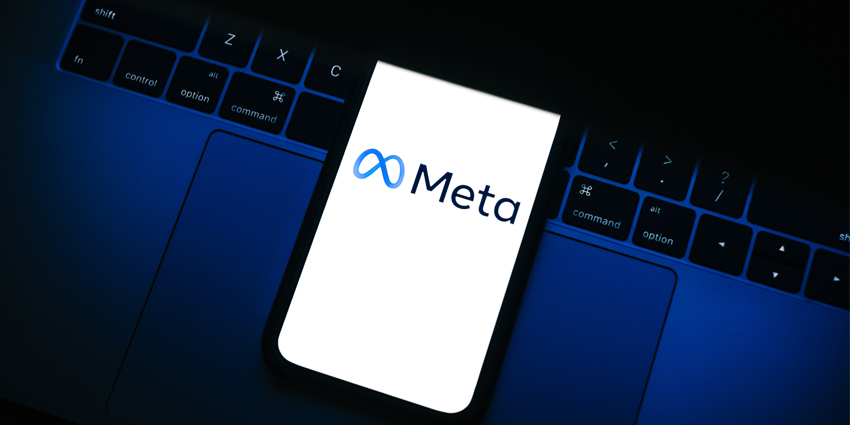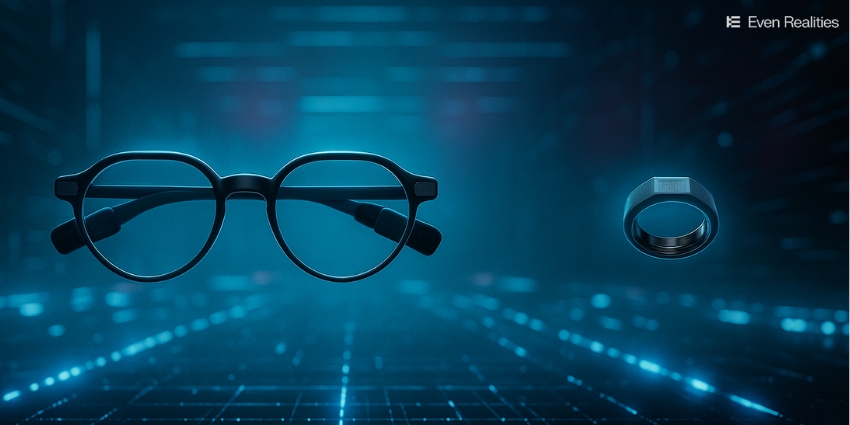Meta and others in the industry are ramping up for a busy 2024. Last year, the firm doubled down on MR headsets and AR smart glasses over previous ambitions towards the consumer Metaverse.
Recently, the firm unveiled new details covering its approach to its hardware lineup, including its Quest and smart glasses immersive portfolio.
Following from its Connect event last year, Meta is working to introduce MR gaming and productivity experiences to consumers. For enterprise, the Menlo Park-based firm is deeply exploring potential use cases for industrial Metaverse solutions through its VR and MR headsets lineup.
On the other hand, the firm’s partnership with Ray-Ban to produce consumer AR smart glasses could also lead to innovations for its enterprise clients. For example, when Meta first announced the current product model, the firm noted how they would update the product with new features in the future – including AI integration and assistive reality features, both of which industrial smart glasses vendors employ.
It appears that Meta is also working hard on a more powerful AR smart glasses product alongside the Ray-Ban device, with the Reality Labs division spending a significant amount of time and capital developing a powerful prototype in the background. However, how this potential device will fare alongside other devices, such as the Vision Pro, is yet to be known.
How is Meta working towards its ambitions, and can the company’s start-of-year movements help predict Meta’s 2024?
Meta Drives Consumer Adoption, Accessibility, and Affordability
Starting January 1st, Meta reduced the cost of its Quest 2 models and accessories in a considered move to drive the adoption of VR headsets – following the device’s mainstream boom.
Driving accessibility for VR headsets at home is a secret key to unlocking industry-wide adoption and ubiquity; as the more familiar audiences at home are with immersive technologies, the easier it becomes to introduce AR/VR/MR devices in the workplace and, therefore, to decision-makers.
With its price reductions, Meta is now selling its 128GB Quest 2 for $249.99, the 256GB Quest 2 for $299.99, refurbished 128GB units cost $229.99 and 256GB devices cost $269.99. Moreover, the firm is reducing the cost of its accompanying Quest 2 accessories, including Elite Strap, Carrying Case, Elite Strap with Battery, Active Pack, and the Fit Pack.
Additionally, in a blog post, Meta highlighted how, with its new pricing model, the Quest portfolio “remains the most affordable way to get into VR and experience all that our industry-leading content ecosystem has to offer.”
Meta CTO on Powerful AR Smart Glasses
To close 2024, Meta’s CTO and Head of Reality Labs, Andrew Bosworth, spoke on recent innovations on an in-house prototype AR smart glasses device, which the firm seemingly plans to debut later this decade.
While Meta is deeply developing the Meta/Ray Ban hardware, the firm is internally working on Project Nazare, a powerful prototype AR smart glasses product.
Despite a long history of rumours, not much is known about the upcoming device, but Bosworth’s recent comments give insight into the powerful device and how it could change the landscape.
Bosworth explained:
In the domain of consumer electronics, it might be the most advanced thing that we’ve ever produced as a species.
Details remain slim, but audiences can expect classic smart glasses featured, such as a “great AI assistant.” Bosworth also notes how creating high-quality displays is proving a pain point currently as the firm aims for a working prototype for 2024.
The display hurdle may explain why the firm has remained somewhat quiet on the device following its limited introduction at Connect 2021, where Meta CEO Mark Zuckerberg noted: “our plan here is to keep building out this product line [and] to release our most advanced technology before we can hit the price-points of Quest.”
More on Meta’s Immersive Hardware Portfolio
Meta’s recent updates come as the firm aims to promote its more comprehensive – and lesser adopted – XR hardware lineup. While the Quest 2 is a great success for the firm, it appears Meta hasn’t reached that high since.
Additionally, with Apple entering the consumer XR device market, the firm may be cautious about its place in the market with the competitive Vision Pro product and other vendors debuting equally leading hardware.
Towards the end of 2023, Meta updated its hardware lineup to improve the overall user experience for various use cases.
In December, Microsoft made Office 365 applications available on the Meta Quest headset lineup, allowing users to work in spatial computing environments. The service launched after Meta announced it at Connect 2022. Office Word, Excel, and PowerPoint services are now available for free on all models of the Quest headset.
Microsoft’s applications are compatible with VR and MR environments, depending on the user’s preferred headset. Furthermore, the free services take up minimal storage space, thanks to a cloud-based infrastructure. However, it’s important to note that cloud integration means that Quest Office users must always be connected to WiFi to use the service.
In the same month, Meta also updated its XR operating system to v60, which removed smartphone notifications amidst a trove of new spatial UI features.
Finally, Meta improved the handling of its devices with an update that significantly improved motion sickness on Quest hardware – making onboarding and first-time operation far easier.
Meta’s 2021/2022 hold on the consumer market may be loosening. However, if the firm can push adoption via consumer campaigns and drive interest in its expensive prototypes, Meta may see deeper adoption from consumers, enterprises, and beyond.







